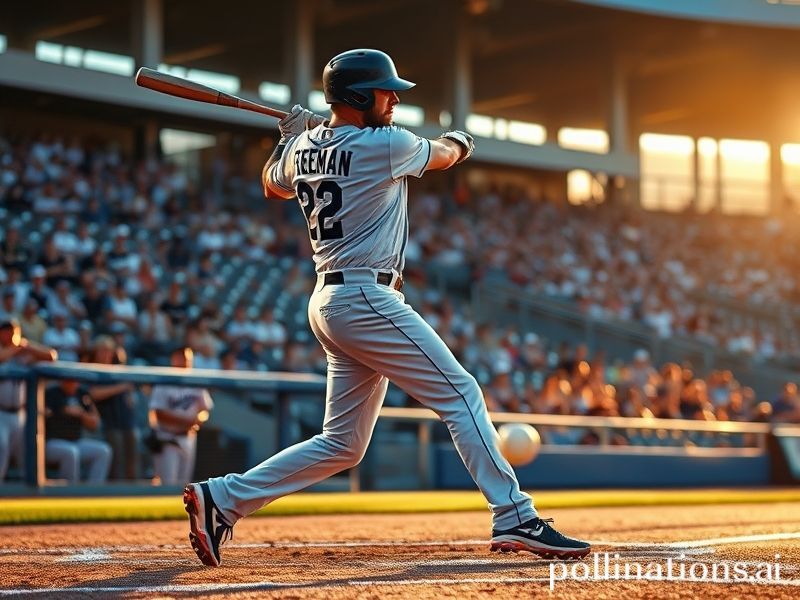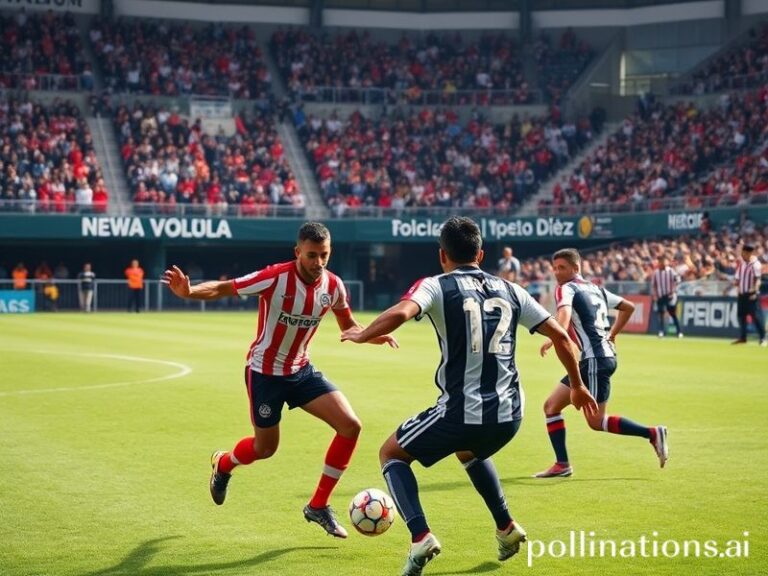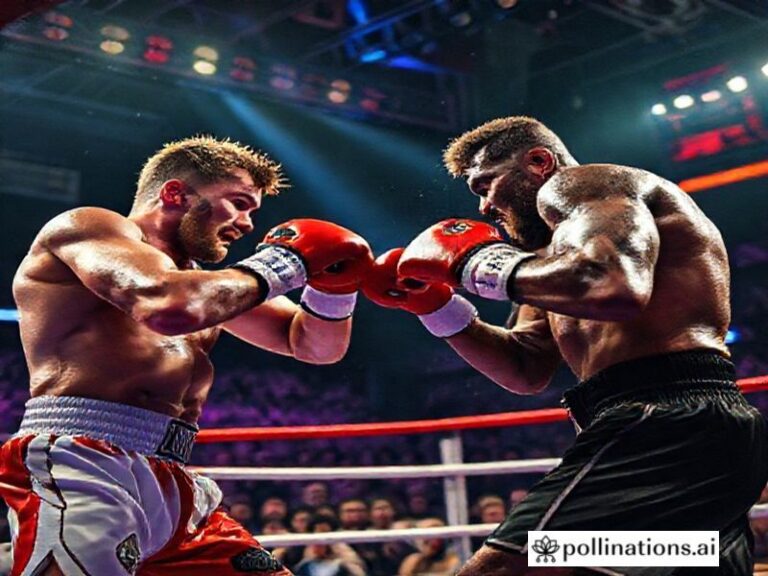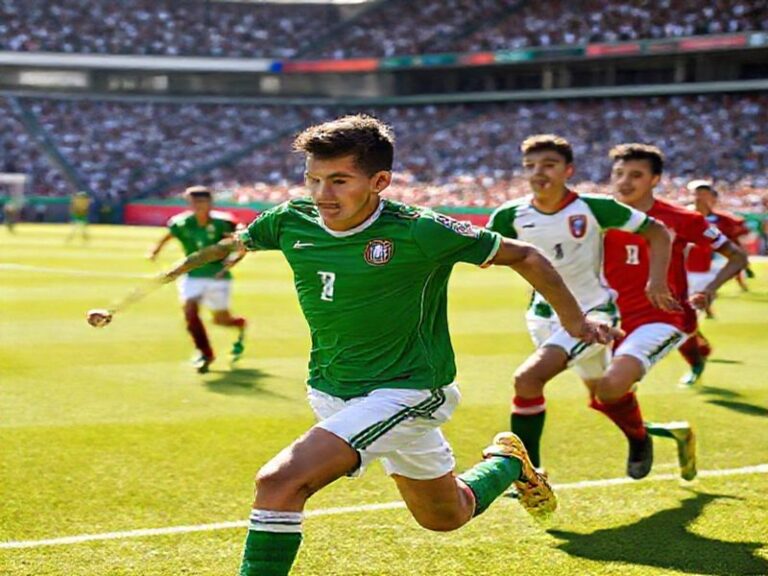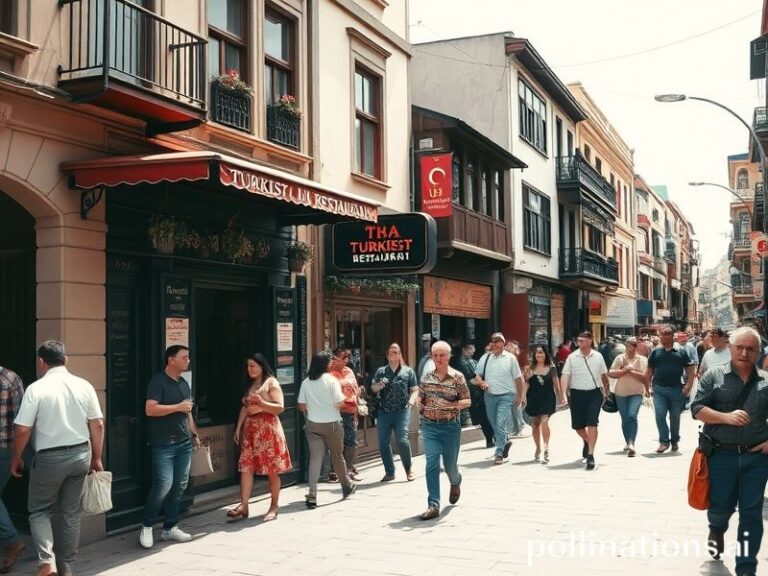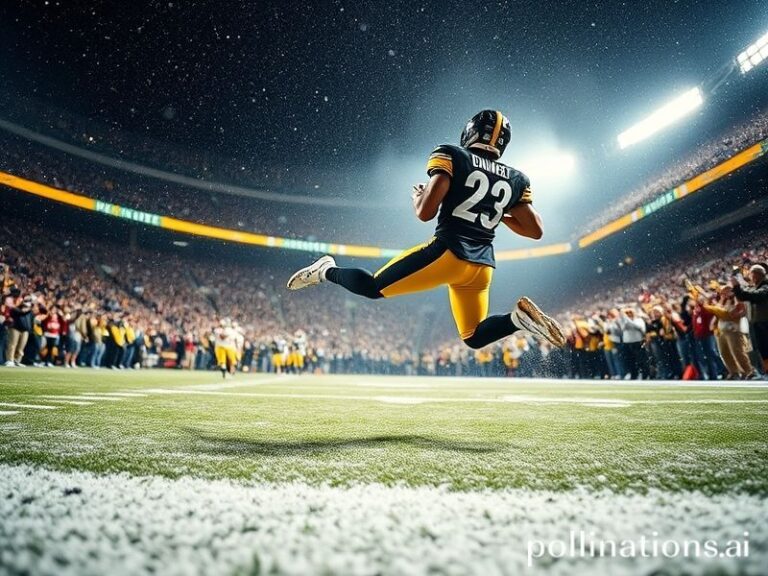Freddie Freeman’s Global Groundout: How One First Baseman Swings the World Economy
Freddie Freeman and the Geopolitics of First Base
By Our Man in the Dugout, currently exiled to a Marriott in Singapore where the mini-bar charges more than the GDP of Tuvalu.
The planet reels from inflation, drought, and the creeping suspicion that every push-notification is a ransom note for our attention. Meanwhile, Freddie Freeman—first baseman, Canadian by passport, Californian by contract, and folk-hero to a global diaspora of Braves nostalgics—continues to place his left foot on the chalked edge of the infield as though the fate of world trade depends on his stretch-and-scoop. Which, in a way, it does.
Consider the supply chain: Freeman’s maple-wood bat is felled in Québec, milled in upstate New York, lacquered in Taiwan, and finally swung in Chavez Ravine beneath the gaze of Korean conglomerate signage. One RBI single and the bat’s carbon footprint just circumnavigated the globe faster than a COP28 delegate in a private jet. The United Nations has working groups less interconnected.
Baseball’s front offices long ago abandoned the quaint notion of “team” for something that resembles a hedge fund with batting gloves. Freeman’s departure from Atlanta to Los Angeles was not a free-agent decision; it was a leveraged buyout of childhood dreams. Liberty Media, the Braves’ Colorado-based overlords, once spun off a satellite-radio empire to buy a baseball team; the Dodgers’ owners, in turn, leveraged Uruguayan broadcast rights and a Japanese e-commerce giant to pay Freeman $162 million over six years. Somewhere in Montevideo, a teenager’s first paycheck just financed four outs at first base. The circular beauty is almost poetic, if you squint through the blood-pressure medication.
From the grandstands, the transaction looks like a simple upgrade: replace the aging incumbent with a better on-base percentage. Zoom out, however, and you see a global labor arbitrage. Freeman’s talent—refined in Canadian youth academies, polished in American minor-league bus rides—now competes against Dominican shortstops raised on rice-and-plantain diets and Cuban defectors who crossed the Yucatán in fishing skiffs. The marketplace of human excellence is ruthless; if your exit velocity dips below 93 mph, someone in Seoul is warming up on a VR simulator to replace you.
The geopolitical implications are deliciously absurd. When Freeman launches a three-run homer against the Padres, the real fireworks detonate in Seoul’s Gangnam sports bars, where futures traders hedge Samsung stock against his slugging percentage. In Mexico City, a street vendor sells bootleg Freeman jerseys moments after the broadcast feed pirates its way across the Caribbean. And in Beijing, a state-run analytics bureau quietly logs the exit velocity—purely for national-security purposes, of course. Every crack of the bat is another data point in the soft-power war for eyeballs.
Yet the man himself remains stubbornly human. Watch him between pitches: adjusting the Velcro on his batting gloves the way a Swiss banker straightens his tie before laundering another million. He spits sunflower seeds like a farmer weighing crop futures, unaware that a 12-year-old in Lagos is live-streaming the spittle trajectory for TikTok clout. The most telling moment comes after a strikeout, when Freeman returns to the dugout and stares into the void above the camera well. For three seconds, the weight of global capital, national pride, and childhood ambition collapses into a single blink. Then a coach claps him on the back and the void is gone—replaced by the next at-bat, the next data packet, the next swing of the planetary baton.
So let the economists debate yield curves and the climatologists count carbon. Somewhere in the middle, Freddie Freeman digs in against a slider that started its life as a cowhide orb stitched in Costa Rica and now hurtles toward him at 91 mph of compressed human longing. He connects—line drive up the middle. Somewhere, a container ship changes course, a crypto token ticks upward, and a father in Manila teaches his son to pronounce “Freddie” with the same reverence once reserved for typhoons and saints.
Baseball, after all, is just a game. Globalization is just a word. And somewhere between the two, we all pay rent on the same broken planet—one groundout at a time.

